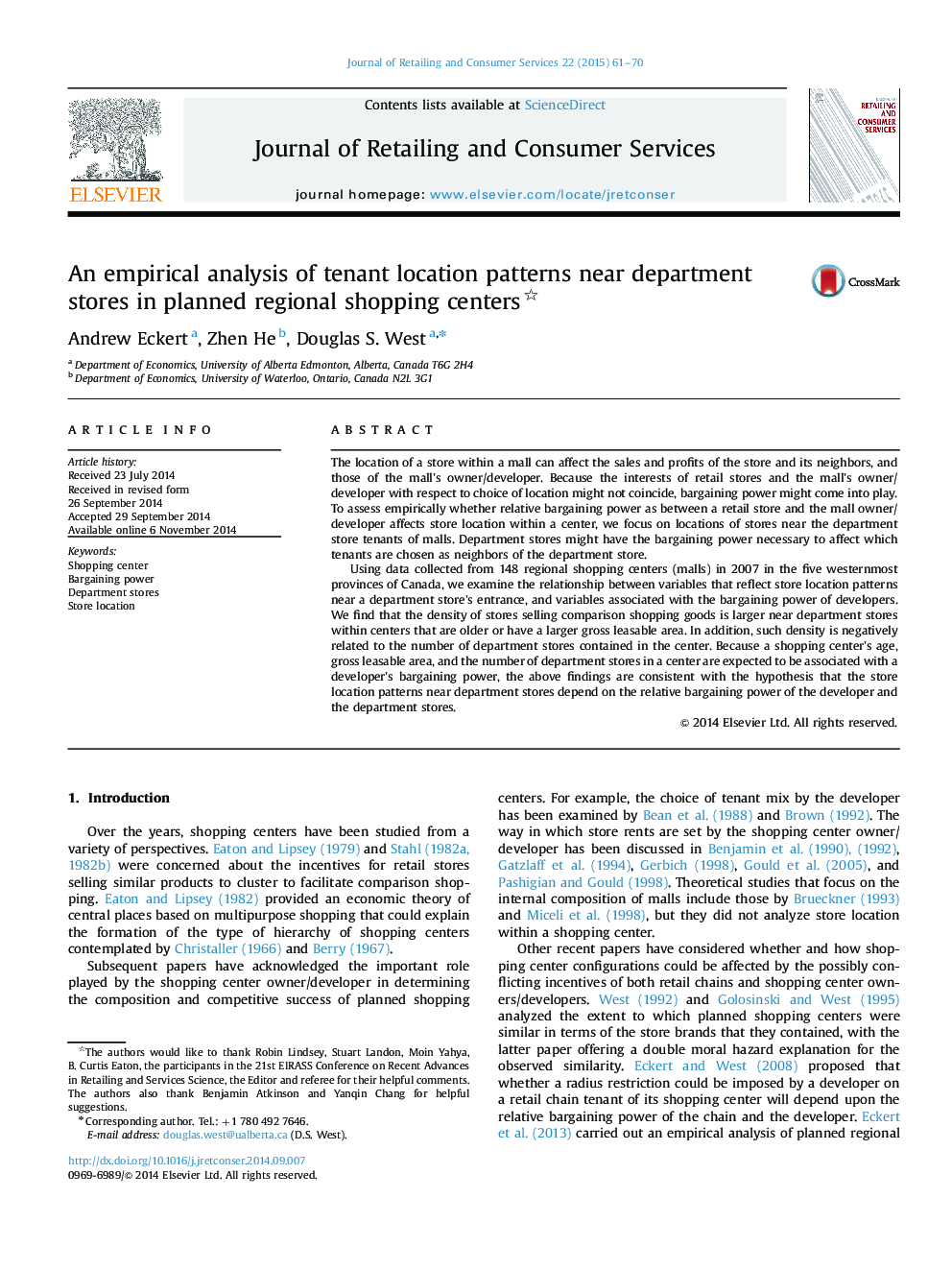| Article ID | Journal | Published Year | Pages | File Type |
|---|---|---|---|---|
| 1028885 | Journal of Retailing and Consumer Services | 2015 | 10 Pages |
•Data consistent with bargaining power affecting store location within a mall.•Focus on locations of stores near department store tenants of malls.•Data are collected for 148 malls in 2007 in 5 western Canadian provinces.•Comparison store density is larger near department stores in older and larger malls.•Such density is negatively related to the number of department stores in a center.
The location of a store within a mall can affect the sales and profits of the store and its neighbors, and those of the mall׳s owner/developer. Because the interests of retail stores and the mall׳s owner/developer with respect to choice of location might not coincide, bargaining power might come into play. To assess empirically whether relative bargaining power as between a retail store and the mall owner/developer affects store location within a center, we focus on locations of stores near the department store tenants of malls. Department stores might have the bargaining power necessary to affect which tenants are chosen as neighbors of the department store.Using data collected from 148 regional shopping centers (malls) in 2007 in the five westernmost provinces of Canada, we examine the relationship between variables that reflect store location patterns near a department store׳s entrance, and variables associated with the bargaining power of developers. We find that the density of stores selling comparison shopping goods is larger near department stores within centers that are older or have a larger gross leasable area. In addition, such density is negatively related to the number of department stores contained in the center. Because a shopping center׳s age, gross leasable area, and the number of department stores in a center are expected to be associated with a developer׳s bargaining power, the above findings are consistent with the hypothesis that the store location patterns near department stores depend on the relative bargaining power of the developer and the department stores.
